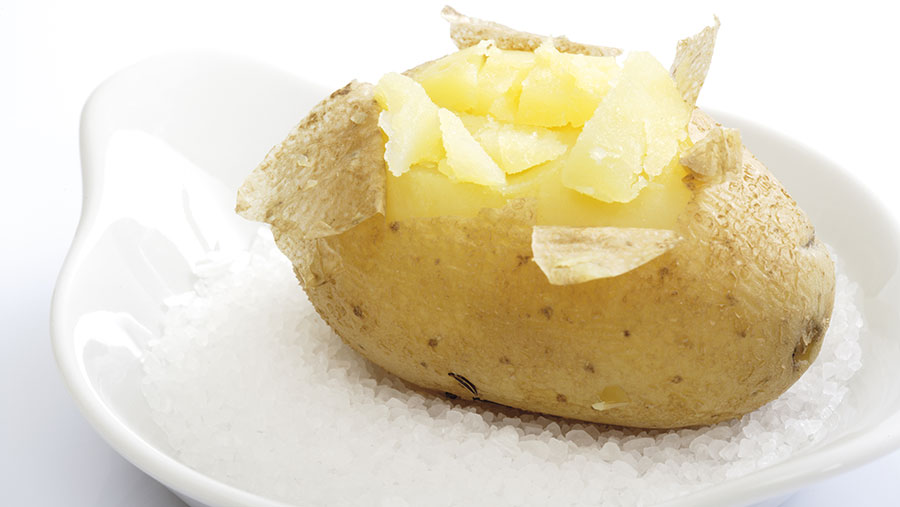No change in potato eating advice following diabetes warning
 © imageBROKER/Rex/Shutterstock
© imageBROKER/Rex/Shutterstock Advice for pregnant women remains unchanged following the publication of US research claiming that eating the humble potato increased their risk of gestational diabetes.
The research, looking at the diets of more than 15,00 women over 10 years, found that women who ate one serving per week were 20% more likely to develop the condition during pregnancy. Two to four portions raised the risk by 27%, while five or more saw the chance of a diabetes diagnosis rising by 50%.
Women who swapped two servings a week of potatoes for other vegetables, such as peas or lentils, were up to 12% less likely to develop the condition, which affects about one in six pregnant women in Britain and can lead to problems at birth.
“Substitutution of potatoes with other vegetables, legumes or whole grains was associated with a lower risk,” said lead author Cuilin Zhang of the National Institute of Health in Maryland.
See also: Purple potatoes offer fresh sales opportunity
And it is not because they were eating fatty chips and crisps, as the researchers found the risk was for all types of potatoes and they believe it is linked to high blood sugar levels resulting from consuming potato starch.
In response, Judith Buttriss, director general of the British Nutrition Foundation, highlighted that body weight was a far greater risk factor than potato eating.
“It’s important to recognise that the main nutrition-related determinant of GDM is pre-pregnancy weight, where the risk far exceeds the level of risk reported in the paper from potato consumption.”
Prof Buttriss added: “The strength of the evidence does not warrant a change in current UK advice.”
The advice is to consume a varied diet providing starchy foods, choosing wholegrains and potatoes with skins where possible and potatoes to increase fibre, as well as plenty of vegetables and fruit, moderate amounts of lean meat, fish and/or other protein sources such as eggs and pulses.

